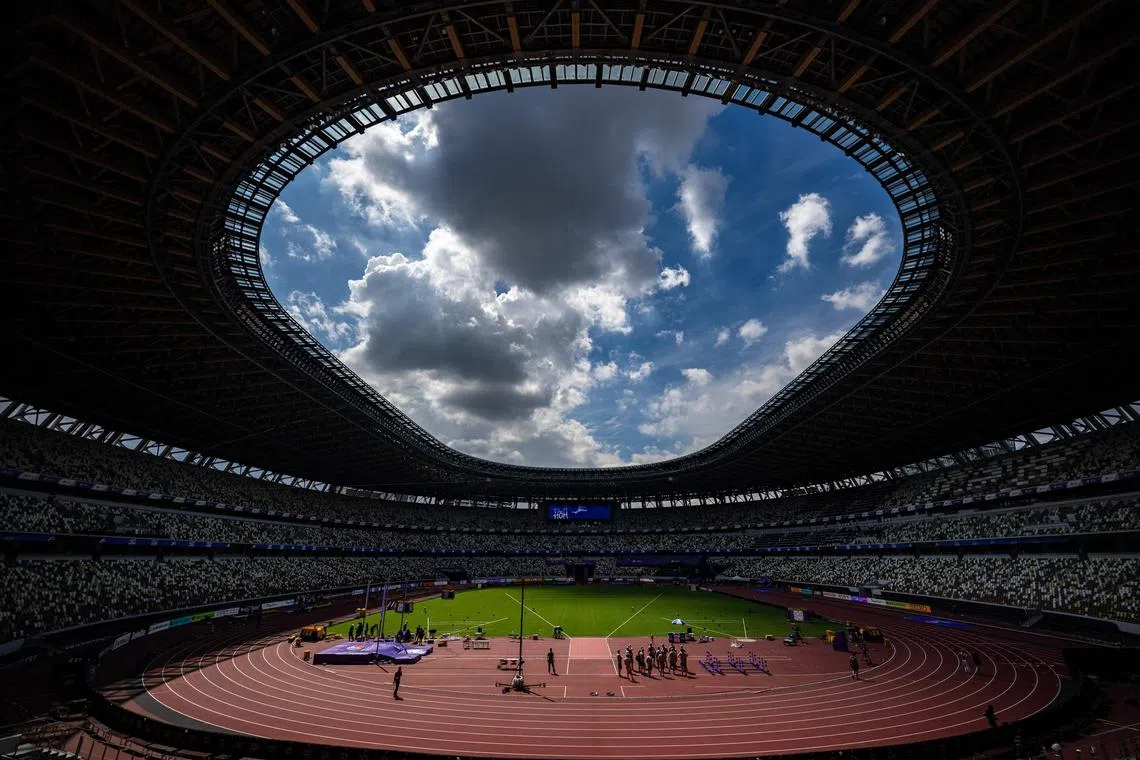Heat risks force Tokyo world c’ships marathons and race walks to start earlier
Sign up now: Get the biggest sports news in your inbox

Temperatures in Tokyo have been as high as 33 deg C this week.
PHOTO: AFP
TOKYO – The marathons and 35km race walks at the World Athletics Championships in Tokyo will start half an hour earlier because of health risks posed by unseasonably hot weather, the organisers said on Sept 11.
The energy-sapping race walks are scheduled to open the championships on Sept 13 morning, with the women’s marathon on Sept 14 and the men’s on Sept 15.
Temperatures have been as high as 33 deg C this week and, with the heatwave set to continue into next week, the organisers have been forced to move the road race starts to 7.30am local time.
“Due to expected elevated heat conditions that could pose a health and safety risk to competing athletes, all road events on the first three days... will start 30 minutes earlier than scheduled,” said a joint statement from the organisers and World Athletics.
“The start time for the road events had originally been set at 8am in consideration of climate conditions, operational aspects, and maximising spectator attendance.”
World Athletics chief Sebastian Coe admitted in Tokyo on Sept 9 that the high temperatures would be an issue for athletes.
Marathon and race walk events at the pandemic-delayed 2021 Tokyo Olympics, which were held from July 23 to Aug 8, were moved to the cooler northern city of Sapporo because of heat concerns.
However, this time round they have remained in Tokyo, where the temperatures in mid-September “have remained at those of mid-summer”, the statement noted.
“(The decision) has been communicated to the athletes as early as possible to allow them to prepare and adjust to the new start time,” it added.
Fears over the heat in Doha at the 2019 world championships resulted in the marathons beginning at midnight, with the walks half an hour earlier.
Japan’s average temperature from June to August was 2.36 deg C above “the standard value”, making it the hottest summer since records began in 1898, the Japan Meteorological Agency (JMA) said.
It was the third consecutive summer of record high temperatures, the agency noted.
In August, more than 3,300 people were taken to hospital for heatstroke in Tokyo, according to the metropolitan fire department.
For the marathon, 185 water spots will be set up along the route for athletes to hydrate, more than what had been planned for the Tokyo Games.
For heat countermeasures elsewhere during the nine-day championships, tents made of fabrics with radiative cooling materials will be installed for athletes and visitors around the stadium and warmup venue.
Volunteers and staff will be monitored for heatstroke with watch-style devices that measure core body temperature and trigger an alarm at dangerous levels, while first responders will patrol the stands for emergencies.
In-stadium competition start times on each of the first three days remain unchanged.
AFP, REUTERS


